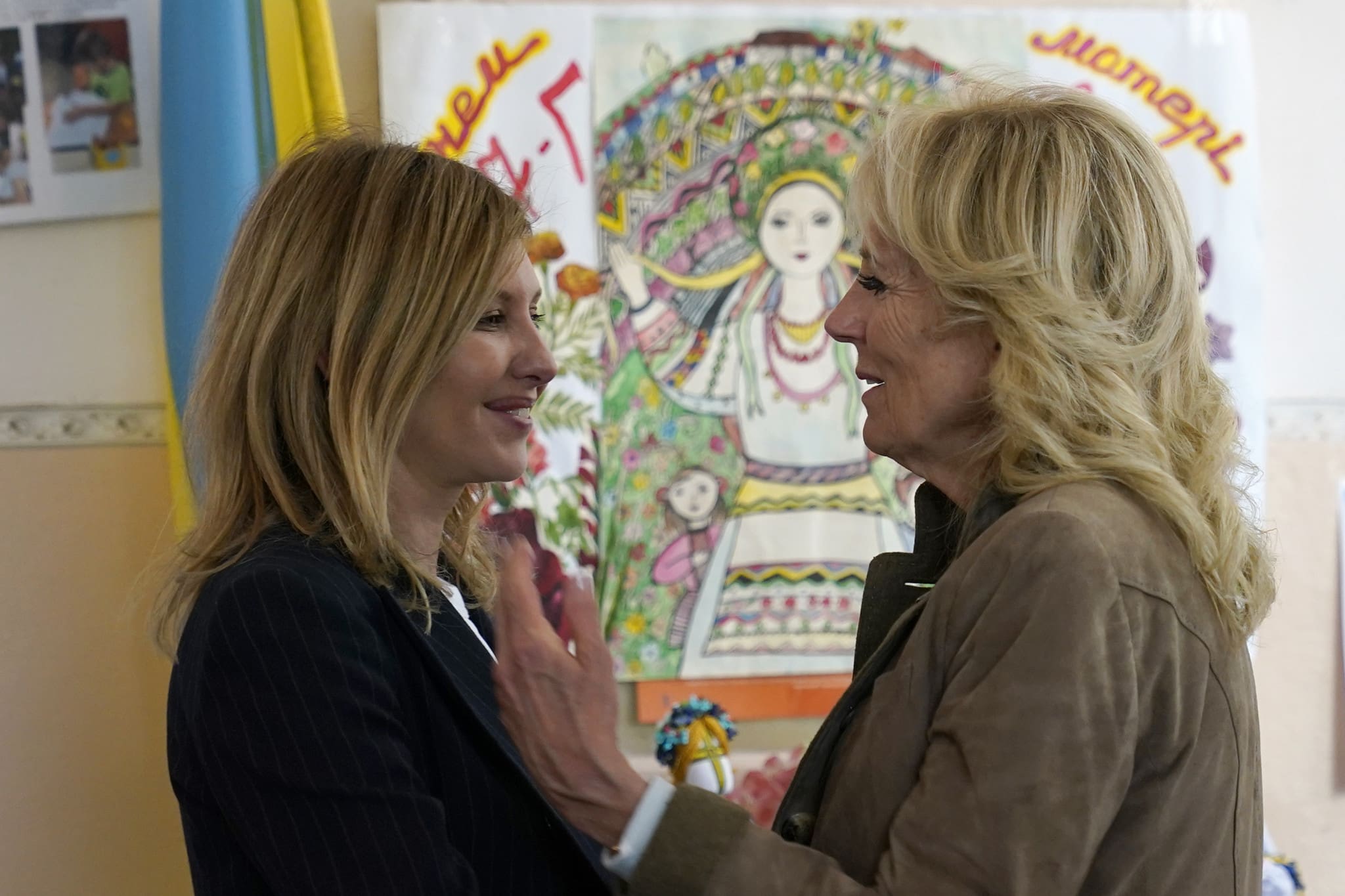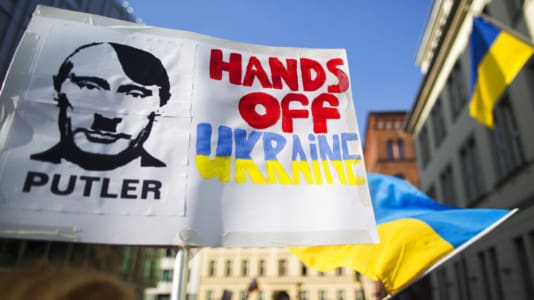The presidential headquarters in the Ukrainian capital are bustling with visits from heads of government keen on getting their photo op with President Volodymyr Zelensky, and making sure their money and weapons sent to fight the Russians are put to good use. However, while the newspaper headlines are busy with reports about ongoing high-level solidarity visits to Ukraine, their silence about who is not visiting, and which countries these world leaders are ostentatiously avoiding, is becoming more palpable by the day.
During the weekend, Jill Biden, the wife of U.S. President Joe Biden, paid a four-day visit to Central and Eastern Europe, starting with a visit to U.S. bases in Romania on Friday. She then continued with a visit to Slovakia and finally crossed the border to Ukraine, where she met with, Olena, the wife of Volodymyr Zelensky, in the town of Uzhorod. President Zelensky remained in the capital Kyiv, as did Joe Biden in Washington. Last week, the White House released a statement saying that the U.S. president “would love to visit” but there were no plans for him to do so at this time.
[pp id=31209]
The day before, while Moscow was celebrating the end of the Second World War with a victory parade on the Red Square, the Ukrainians hoped for a higher level visit from Washington than the president’s wife, who nevertheless received a welcome in the Uzhorod elementary school she visited.
Joe Biden’s reluctance to travel to Ukraine in March, when he visited neighboring Poland was, to an extent, understandable as the capital Kyiv was still surrounded by Russian troops. However, at the present circumstance, sending his wife to the warn-torn country instead of paying a visit in person is baffling to say the least.
Jill Biden’s visit itself follows an ever more noticeable pattern. After visiting Romania, she flew straight to Slovakia for a three-day visit, skipping Hungary, which lies right between the two countries. In Slovakia, she paid her respects at the memorial to murdered investigative journalist Jan Kuciak and his fiancé in the capital Bratislava. She then flew to eastern Slovakia’s Kosice, where she met the staff of a charity helping Ukrainian refugees and even spoke to some of those who fled the war. The First Lady then traveled to a Slovakian border crossing with Ukraine, where she inspected facilities welcoming refugees and a school that offers education to children fleeing the war.
[pp id=35655]
In eastern Slovakia, and subsequently in Uzhorod, Jill Biden was accompanied by Slovakian Prime Minister Eduard Heger. Heger, who remarked that the First Lady’s three-day visit to Slovakia was a great gesture which highlighted Slovakian citizens’ solidarity towards refugees fleeing the conflict. According to the Slovak prime minister, she also showed her appreciation towards Slovak police officers, charity workers and soldiers helping refugees arriving at the borders.
“She thanked Slovaks for their open arms, open homes and hearts, and declared the USA’s support to Slovakia and its citizens,” said Heger. On Monday Jill Biden was also welcomed by Slovakian President Zuzana Čaputová in Bratislava.
It remains to be seen if the frequent high-level visits from U.S. officials can continue to fill the gap for an absentee U.S. president. Before Jill Biden, House Speaker Nancy Pelosi, U.S. Secretary of State Antony Blinken and Defense Secretary Lloyd Austin all paid a visit to Ukraine. It can only be assumed that if it was safe and important enough for them to visit, it could or even should have been safe and important enough for the U.S. president to show his solidarity with the people of Ukraine.
While top representatives of the free world are visiting countries on the frontline of the Ukrainian refugee crisis and showering praise for the “open arms, homes and hearts” shown fleeing Ukrainians, this praise does not extend everywhere. In fact, they are behaving like one of the countries most effected by the flow of refugees, Hungary, does not even exist. Since February, Hungary has experienced an unprecedented influx of refugees, and according to some estimates, over 600,000 sought refuge in Hungary or transited the country on their way to Western Europe.
[pp id=35728]
Although Hungarian citizens have equally opened their “arms, homes and hearts” to those fleeing the war, and the government of Viktor Orbán spent millions of euros on housing refugees in Hungary as well as sending aid to Ukraine, Western media headlines were reporting that the Hungarian efforts were overwhelmingly hostile and, at the same time, no high-level Western visits occurred the country as of yet to show their appreciation for Budapest’s efforts.
Orbán’s government was again singled out for its refusal to ship weapons to Ukraine and its disagreement with Brussels regarding sanctions against Russian oil and gas. Yet, its efforts to assist Ukrainian refugees either staying in Hungary or transiting have been largely ignored by both the West and the government in Kyiv. One German magazine, Der Spiegel, known for its regular and vicious attacks on Hungary and Hungarians, disparagingly remarked that while it is true that over half a million refugees crossed into Hungary, what Orbán “didn’t mention was the fact that most of the refugees apparently left his country long ago.”
What the newspaper did not mention instead is that only a fraction of those who stay in the country will choose to register officially for asylum, while many were offered permits to stay and even received work permits. While disagreements over the weapons shipments and energy embargoes among NATO and EU allies can be dealt with on a factual basis, the complete lack of appreciation for private households in Hungary, the efforts of Hungarian charities, and the public sector’s efforts on behalf of Ukrainian war refugees inevitably develops an ideological and political undertone.





